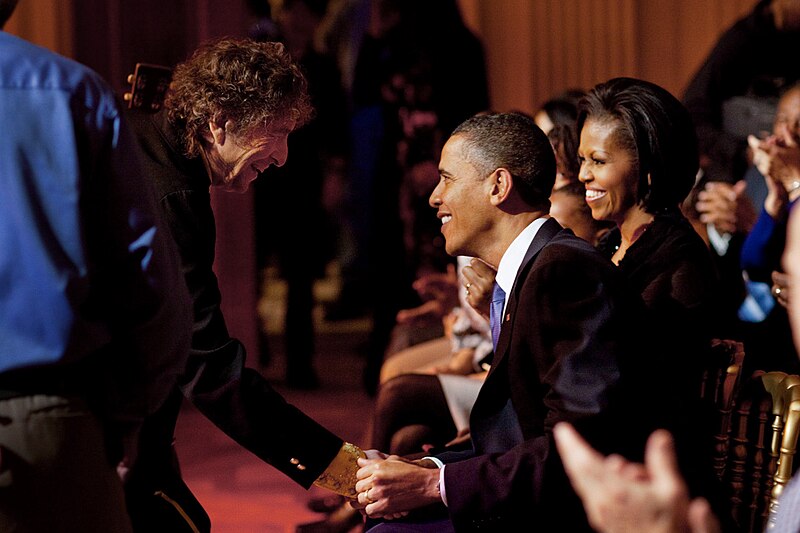 | ||
| Pope Francis (US government photo) |
This straightforward message led Pope Francis to discuss various specific places that called for peace. He urged "Israelis and Palestinians" to "resume direct dialogue and reach an agreement which will enable the two peoples to live together in harmony." He specifically prayed that the United Nations' agreement would lead to an end to Syria's conflict and resolve "the extremely grave humanitarian situation of its suffering people." He went on to urge the opposing parties to reach agreements to end the conflicts in Libya, Iraq, and Yemen. He expressed sympathy for "those affected by brutal acts of terrorism."
He wasn't finished reviewing the world's problems. He also prayed for peace in Congo, Burundi, South Sudan, and Ukraine. He reminded the world's leaders that they had already agreed on terms "to restore concord in Ukraine" and urged them to fulfill their agreements.
Pope Francis concluded his message by returning to explicitly religious theme: "Where God is born, mercy flourishes." Of course, the point that he implied was that peace is a specifically religious theme.
Anyone following the news knows that many of his points were actually very controversial. But if a speaker isn't willing to create some controversy, why bother giving a speech at all? Many people think that a religious speech, especially on a special day, should avoid politics. But why? When is it more important to discuss public policy, to remind the world's leaders of their moral obligations? Please note that the Pope did not speak for or against any particular politician, nor did he speak for or against any particular proposal. Instead, he offered moral guidance to help the world's leaders understand their obligations. Just as ceremonial speeches can, and often should, turn to political or moral questions, so a religious speech can, and should, offer moral guidance about public issues.
So, for my own part, I wish a joyful and peaceful Christmas to all.






















